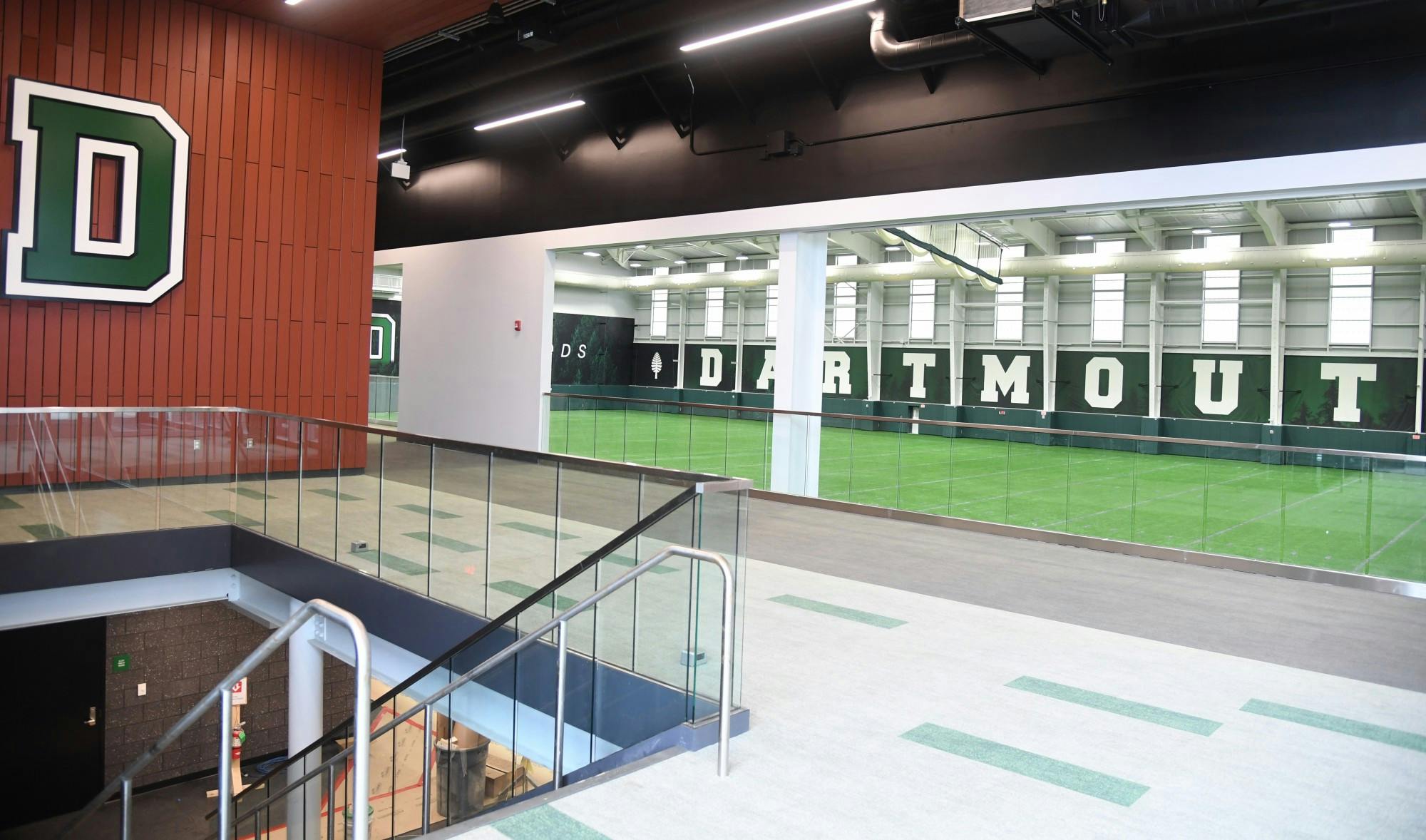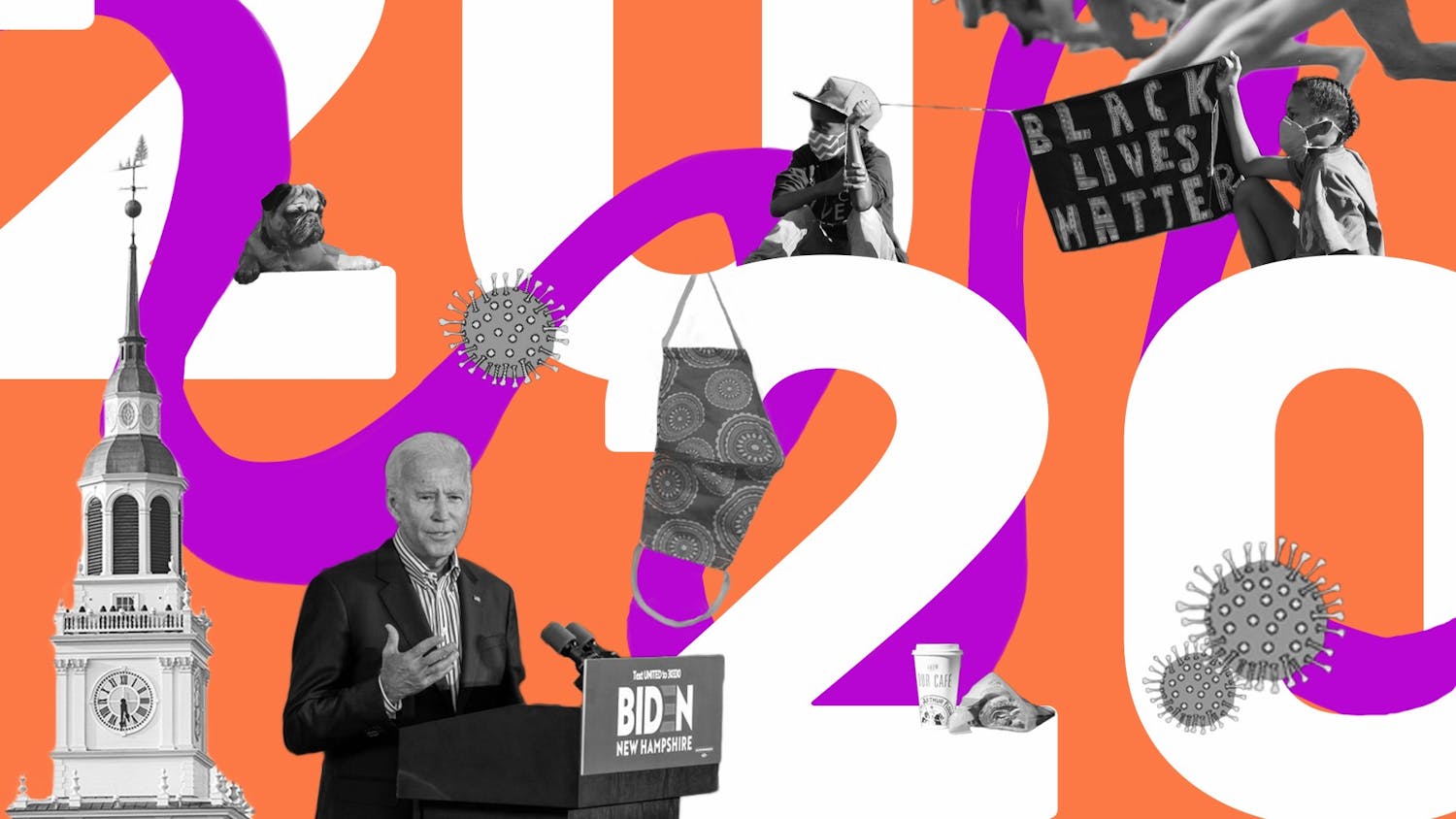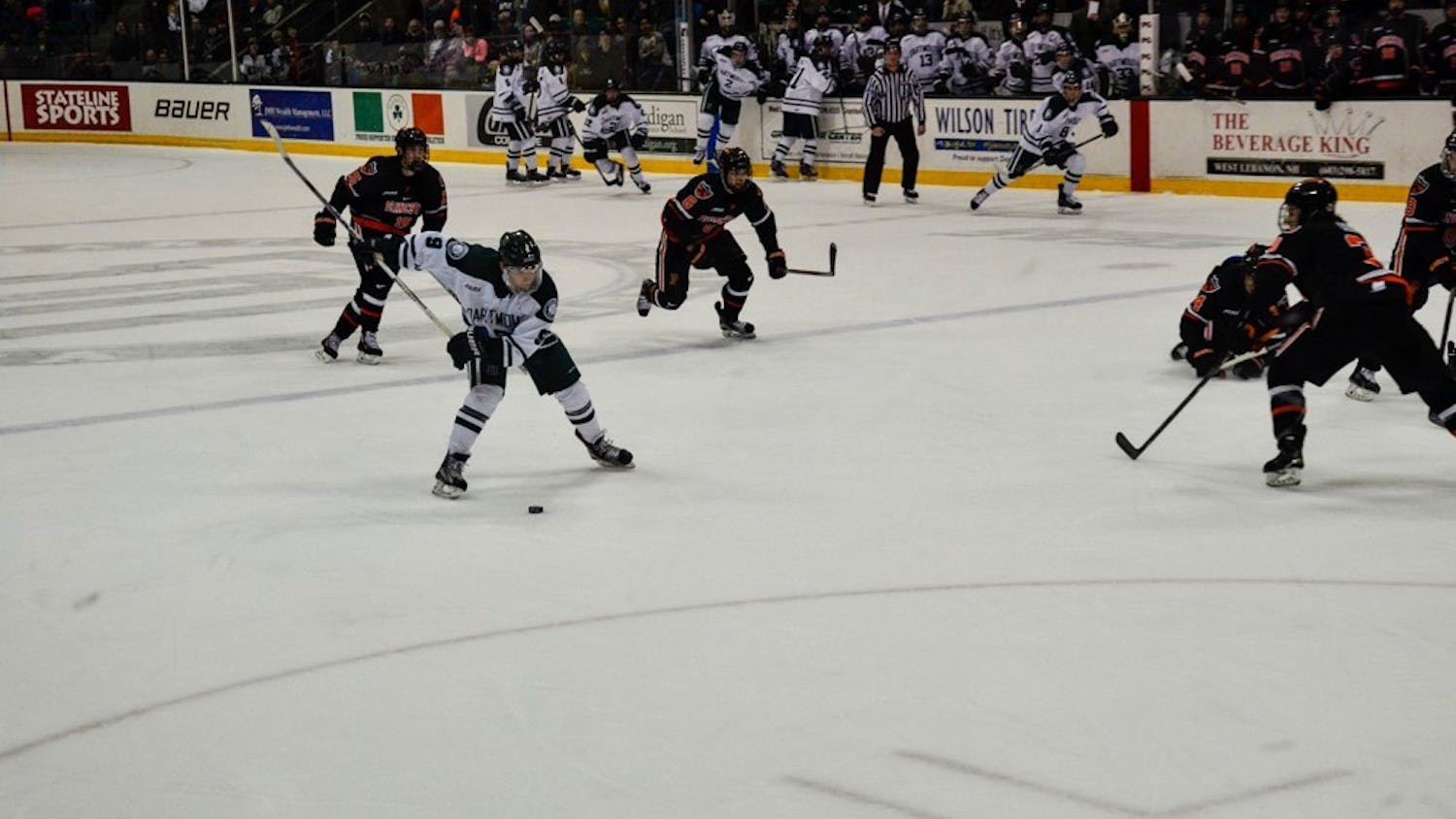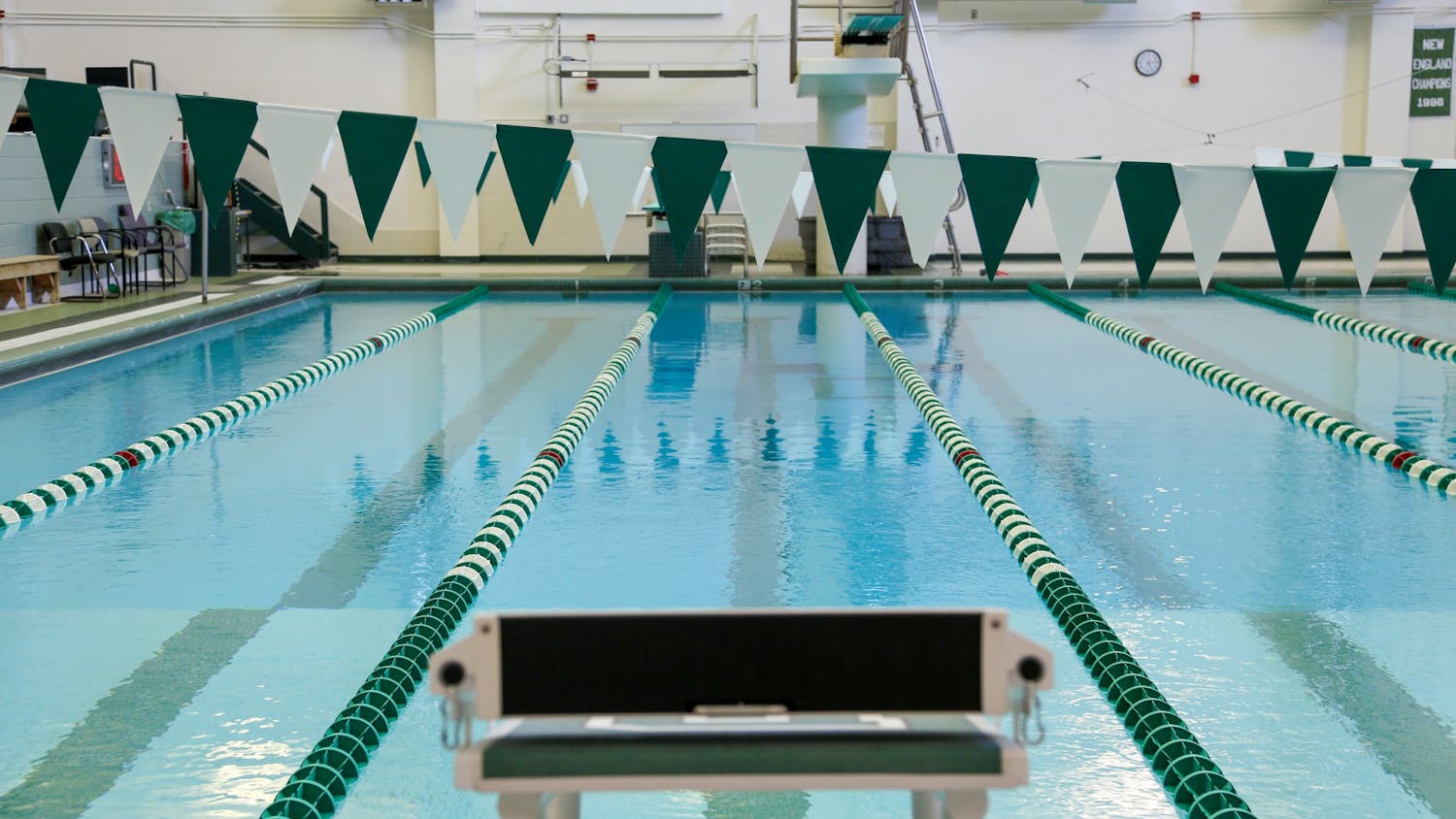Despite the cancellation of all Ivy League athletic competition until at least Jan. 1, student-athletes living on campus this fall will be able to participate in training and practice opportunities starting after each student-athlete’s initial 14-day quarantine period.
The College’s plans align with the Ivy League’s rules for athletic activities, which permit training so long as that training adheres to state and university regulations. Dartmouth will follow a return-to-sport protocol in which student-athletes move through three phases: individual conditioning, small group workouts and finally small group practice sessions.
“Masking and sanitizing will be specific to each facility or field. … We’re looking at the small groups of 10 or less and the 10-foot radiuses for physical activity as our primary guidelines,” said senior associate athletics director for Dartmouth Peak Performance Ian Connole. “We’re also taking deep dives into the ventilation and everything that could potentially impact the spread of COVID.”
According to Connole, movement between the three phases will be based on the overall spread of the virus on campus, multiple negative COVID-19 tests for all student-athletes and updated state and College guidelines, among other factors.
Phases one and two must be in place for at least one week before moving forward, but Connole noted that either of those phases “could easily” last for the entire term. The ability to maintain distance in each sport will play a major factor in determining which sports progress at a more rapid pace. Phase three, the final phase, could involve scrimmaging and close contact drills.
“Sports that have the lowest risk like, say, tennis, potentially cross country, things of that nature, would be able to go into phase three quicker,” Connole said.
With only about half of Dartmouth’s students returning to live on campus this fall, teams will not be at full capacity, with freshmen and juniors comprising the vast majority of students on campus this term.
Men’s soccer coach Bo Oshoniyi said most of his team’s freshmen and juniors, as well as a few seniors — about half of his team — will be on campus this fall. However, Oshiniyi said he is confident that all of his players, including those not on campus, will remain ready for a possible spring season.
“We really don’t have to stay on top of our guys to make sure they’re doing the right things, [like] running, staying in shape — they’re pretty ambitious,” Oshoniyi said. “… They’re really motivated to win an Ivy League championship whenever that is, whether that’s in the spring or next fall.”
Football player John Paul Flores ’22 said that although this fall will not be the term he and his teammates are used to, the canceled season will allow upperclassmen to bond with incoming freshmen and prepare to compete for back-to-back Ivy League titles when the next season arrives.
Connole said teams have done a great job of welcoming freshmen, in particular because the NCAA allowed the Class of 2024 to engage with teams earlier than usual due to the pandemic.
“They’ve actually probably had a head start on most incoming classes in having really formalized connections,” Connole said. “This year, we’ve been able to integrate them within the team much earlier.”
This fall, the leadership responsibilities will fall on the juniors on campus, as well as the seniors virtually.
“We don’t know how many of the seniors will come back, so we might be the seniors per se this year,” Flores said. “I think it’s a good opportunity to bond with the incoming ’24s because usually if you’re an upperclassman, you’re primarily focused on playing or focused on competing for a spot.”
However, with no decision on a return to sports expected for at least another month, it will be difficult for student-athletes to train for a season without a start date.
“It’s not an offseason for any of the teams,” Connole said. “… All of our teams have the potential to be competing during one of the next two terms, so we’re looking at it as a 10-week return from nothing to being prepared for whatever comes next.”
Additionally, student-athletes face the fear of working back to a game-ready fitness level too soon and risking injury. Connole said athletes must be careful when returning, but that coaches and the DP2 staff are well prepared.
“The pandemic has increased some inequit[ies] around our country, and some of those involve access to elite training that many of our athletes are used to and engage with on a regular basis,” he said. “Their ingenuity across the board has been exceptional, and they have been finding ways to stay fit, stay engaged in their sport within multiple levels of constraint.”
Teams will continue to use Zoom and other technologies like fitness apps to monitor athletes living away from campus and to maintain team chemistry. Connole said that the D-Plan, which results in student-athletes spending time away from campus, has prepared teams for this term.
“I see this hybrid environment as the next step from where we’ve been, which is [where] everything [was] completely virtual. The challenges are much greater than fall of 2019 was, but they are a little bit less than what spring of 2020 was.”
Most schools that compete in the Football Championship Subdivision are preparing for a spring season, and the NCAA approved a 16-team playoff for the spring on Wednesday. However, Ivy League teams do not compete in the FCS playoffs, so their schedules would not have to line up with other conferences.
Despite hope for football and other fall sports to be moved to the spring, Flores said he thinks there is only a small chance the Ivy League will play a spring football season, especially because the Ivy League has been at the forefront of player safety and was one of the first conferences to cancel 2019 spring sports back in March.
“Obviously we want to play football, but for some people it wouldn’t be the worst thing in the world, possibly taking a fifth year here at Dartmouth, developing a little more physically, mentally having a better grasp of the game and the playbook,” Flores said.




